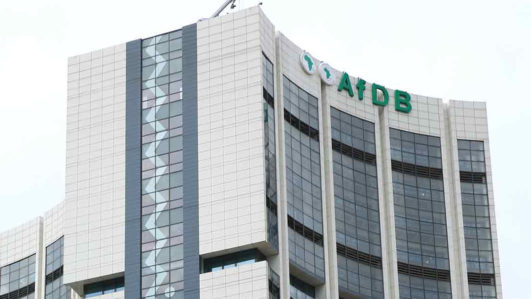An AfDB Group member, FSDH Merchant Bank of Nigeria, has been granted a $15 million trade finance line of credit and a $10 million transaction guarantee to use in making loans to businesses in the country.
The African Development Bank (AfDB) says that the continent has a trade finance deficit of $82 billion. The AfDB also says that it is harder for small and medium-sized businesses (SMEs) and other domestic businesses to get trade financing than it is for multinational corporations and large local corporations.
The AfDB $25 million package would help Nigeria close the trade financing gap.
Under the guarantee part, the lender will additionally guarantee up to 100% of the non-payment risks associated with letters of credit and other comparable trade financing instruments issued by FSDH. This will make it possible to check trade deals started by FSDH, which will help import and export companies in the region.
Read also: Covid-19: African Development Bank (AfDB) Drives $20 Million Into Off-Grid Recovery Platform
Over the next three years, the facility will lead to more than $200 million in trade financing transactions in many different fields, such as agriculture, manufacturing, and energy.
The availability of trade finance instruments to support post-pandemic economic recovery efforts cannot be overemphasized, as stated by the bank’s Director General for Nigeria, Mr. Lamin Barrow. So, the bank’s funding would make it possible for qualified Nigerian SMEs to take advantage of opportunities in the national and regional markets, both now and in the future. Mr. Barrow said that the COVID-19 outbreak and other things had caused international banks to cut back or stop their banking relationships in Africa.
The facility is in line with the lender’s strategy for developing Africa’s financial systems and financial sector development policy. Additionally, it supports two of the bank’s top five strategic initiatives, namely industrializing Africa and feeding Africa.
Mr. Stefan Nalletamby, the bank’s Director for Financial Sector Development, said, “We are excited about finalizing this facility with FSDH because having the bank as a partner would allow FSDH to step up its trade finance solutions in Nigeria to help fill the gap in trade financing that keeps getting bigger.”
Over the next three and a half years, this cooperation is expected to lead to more than $200 million in trade financing deals in many different industries, such as agriculture, manufacturing, and energy.
The two pillars serve as the foundation for the African Development Bank’s current Nigeria strategy: aiding in infrastructural development and fostering social inclusion via agribusiness and skill development. From its financing and non-lending operations, the bank thinks there are several prospects for women and young people.
The bank now has 53 active accounts in Nigeria, with a total market value of $4.5 billion. A total of 30 sovereign activities totaling $2.7 billion make up this, accounting for 60% of all obligations. There are also 23 non-sovereign enterprises worth $1.8 billion.
AFDB Approves Establishment of African Pharmaceutical Technology Foundation
The initiative will also increase financing for African women SMEs
The African Development Bank Group (AfDB) is working with the Africa Women Innovation and Entrepreneurship Forum (AWIEF) and the Affirmative Finance Action for Women in Africa (AFAWA) initiative to help women-owned and led small and medium-sized businesses (WSMEs) in Southern, East, and West Africa get better access to capital and markets.
The newly launched AWIEF initiative, Solutions Catalysing Increased Access to Capital for the Success of Women Entrepreneurs, seeks to hasten efforts to combat gender inequality and promote inclusive economic development.
In eight African nations (Nigeria, Kenya, South Africa, Zambia, Rwanda, Malawi, Tanzania, and Zimbabwe), more than 500 growth-oriented women-owned microenterprises (SMEs) will get assistance for size, access to markets, and investment preparedness.
Over the course of the two-year program, a pipeline of investment-worthy companies that are ready to get money will be built.




